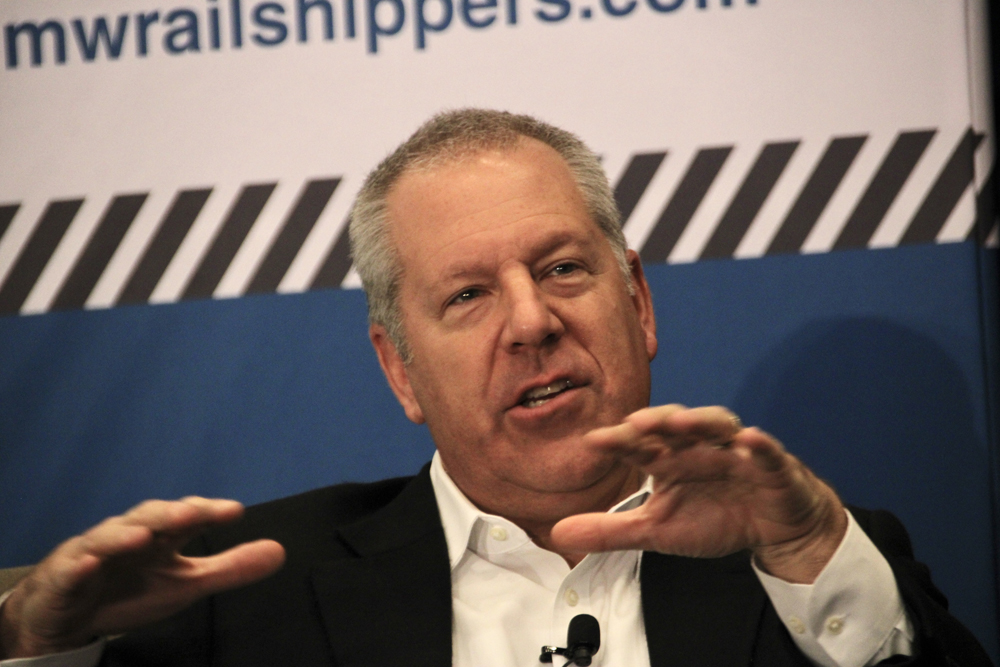
LOMBARD, Ill. — The theme may not be new, but the emphasis seems to be increasing.
The idea that railroads need to work together — and that doing so can be beneficial to all parties, not just the railroads involved, but their customers as well — was a recurring topic during the first day of the Midwest Association of Rail Shippers Winter Meeting.
The meeting, which began today (Wednesday, Jan. 10) and concludes Thursday, is celebrating the 100th anniversary of MARS, and as is often the case, features a heavyweight lineup of industry speakers. CSX CEO Joe Hinrichs and his Norfolk Southern counterpart, Alan Shaw, were on the agenda today, along with Union Pacific President Beth Whited. Canadian Pacific Kansas City CEO Keith Creel will open the Thursday session.
It was Hinrichs — the leadoff speaker in a “fireside chat” session moderated by independent analyst Anthony B. Hatch — who first sounded addressed theme of cooperation, returning to a message he addressed in November at the RailTrends conference in New York [see “CSX CEO Joe Hinrichs encourages railroads to work together …,” Trains News Wire, Nov. 23, 2023].
“I actually run into people all the time for the industry,” Hinrichs said, “and they’ll tell me they work for one of our competitors, and I’ll say, oh, who do you work for? They’ll say, Union Pacific. And maybe I’ll say, where do we compete? There’s a notion in this industry that somehow we all compete with each other, when actually we mostly partner with each other and we interchange, whether it’s short lines, or whether it’s the other Class Is. No disrespect to Norfolk Southern — they’re a competitor to us. But the rest of the railroads, by and large, are partners, are part of the customer experience. … At the end of the day, the industry would be much better off if we had this mindset that we’re better together … to serve customers and help the economy.
As it happens, there have been increasing forms of cooperation between Class I railroads in recent months, including the agreement between CSX and CPKC to create a new gateway by acquiring short line Meridian & Bigbee, or new intermodal agreements such as the Canadian National-Union Pacific-Grupo Mexico Falcon Premium service. This prompted Hatch to ask Hinrichs why, and if the balance between competition and cooperation is shifting in the right direction.
“I think first of all, by and large, you have relatively new CEOs almost across the board,” Hinrichs said. “I mean Keith [Creel]’s been in his role for a while, but certainly CPKC has been a big part of stimulating this competition, as you referred to it. But by and large, we have pretty much new CEOs across the board who obviously want to drive improvements, drive change. So that’s probably good for the industry overall. There’s no question that CPKC coming together has changed the competitive dynamic in the West. We see it. And obviously you’ve seen, as you noted, all these different things which would be good for customers.”
Many of these changes qualify as both cooperation — with one railroad — and competition, with another railroad or group or railroads. And that, to Hinrichs, is not a bad thing.
“I like to compete. To me, that’s why we’re here, is to be stimulated by that spirit of competition. Sometimes you win, sometimes you lose. You’ll learn, and you get better, and so on and so forth. And then the customer wins. And so I think it is good for the industry. I think you’ll see more of it. I know that we’ve been very proactive in those discussions. …. We’ve met with all the partner railroads and we continue to do so.” The Meridian & Bigbee venture, and a joint hydrogen locomotive project with CPKC, came out of multi-hour discussions at CSX headquarters between leadership of the two railroads, he said.
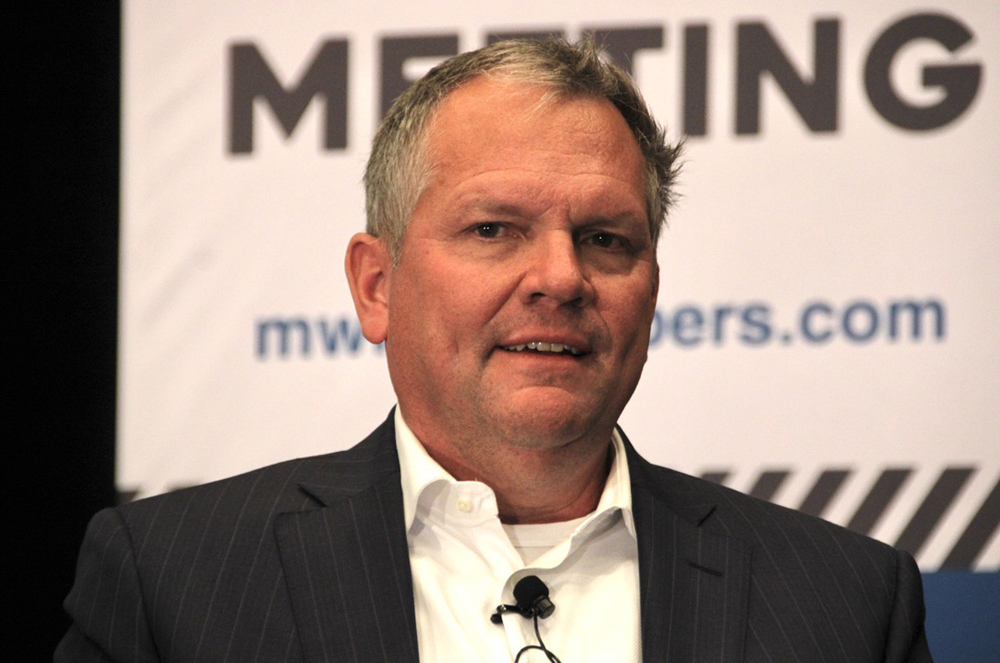
NS’s Shaw looked at cooperation in another way, pointing to the railroad’s hiring of Stefan Loeb, a former MARS president who was previously with short line company WATCO. “Stefan is the first and only vice president of first and final mile in the railroad industry,” Shaw said. “So we’re putting our money where our mouth is, and we’re investing in those partnerships with our short lines, which really extend the reach to our network and extend the optionality for our customers. He’s working on some good pilots to improve both service, he works closely with operations on improving productivity, and in growth. I think he’s working with the Ann Arbor Railroad and Grand Elk Railroad on some growth lines.”
From the other side of that equation, participants in a panel on short lines said they were encouraged by what they are currently seeing and hearing from the Class I railroads.
“I can tell you over the past five years, things have changed dramatically and have been much improved,” said Justin Broyles, executive vice president, commercial affairs for R.J. Corman. “… The Class Is that we deal with, and we deal with four of the six, have been fantastic. And if you look at who’s running these railroads, I think that says something, too. There’s four of the six Class I railroads that are either run by marketing people or a shipper. I think that’s a promising place to be … I hope it’s something that’s sustainable and that investors will give it a chance.”
A slight cautionary note was sounded by Mike Peters, chief commercial officer of Genesee & Wyoming.
“I would also say it’s been very cyclical. I’ve been now on the shortline side for 10 years, and there was one Class I that at one point stood front of us and said, ‘Notice I’m not using the word partner; I’m never using the word partner again.’ Fortunately that cycle is over. The point to my team is if we have to show value every day, we have to show value to the Class 1 just as we have to show it to our customers. … And I agree that as far as the cycle goes right now, the cycles are as good as I’ve ever seen in terms of the Class I expressing value and being willing to work with us.”
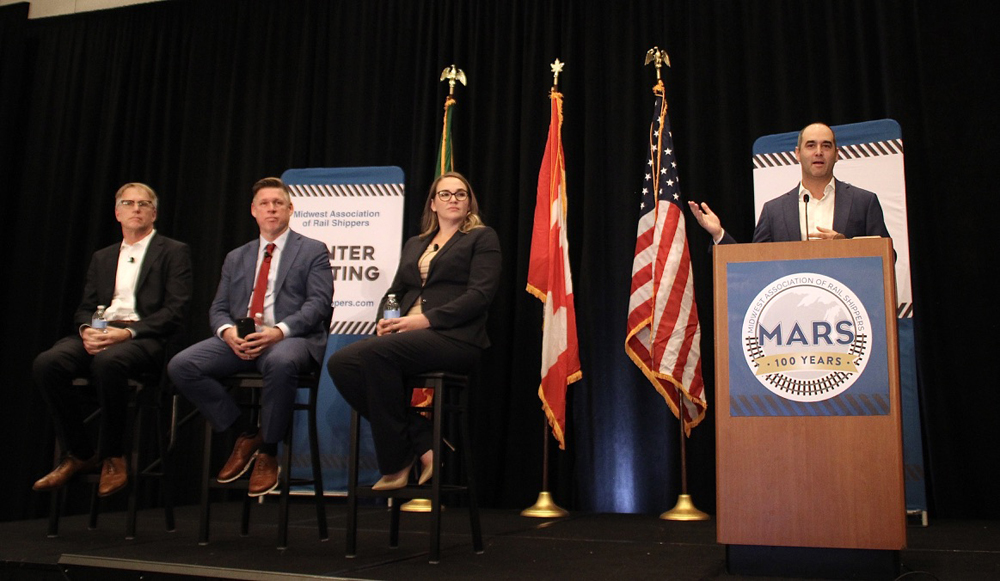








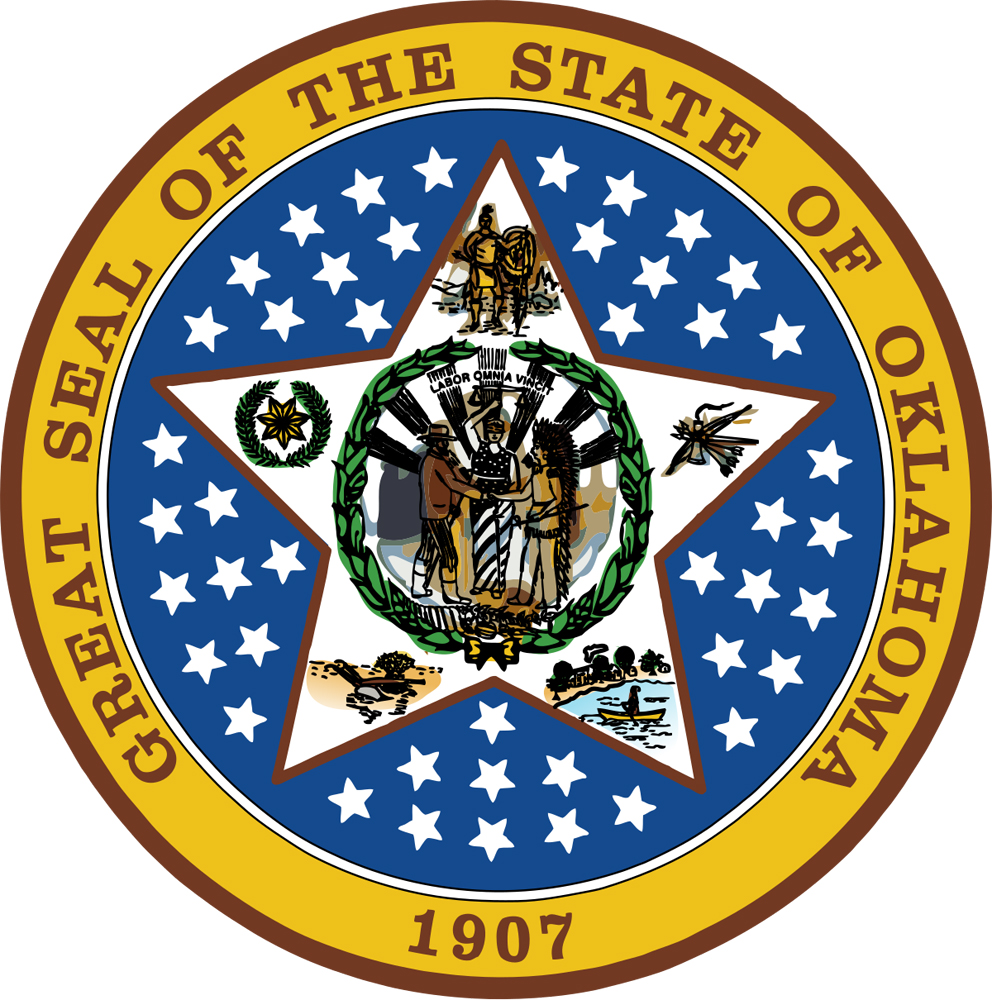
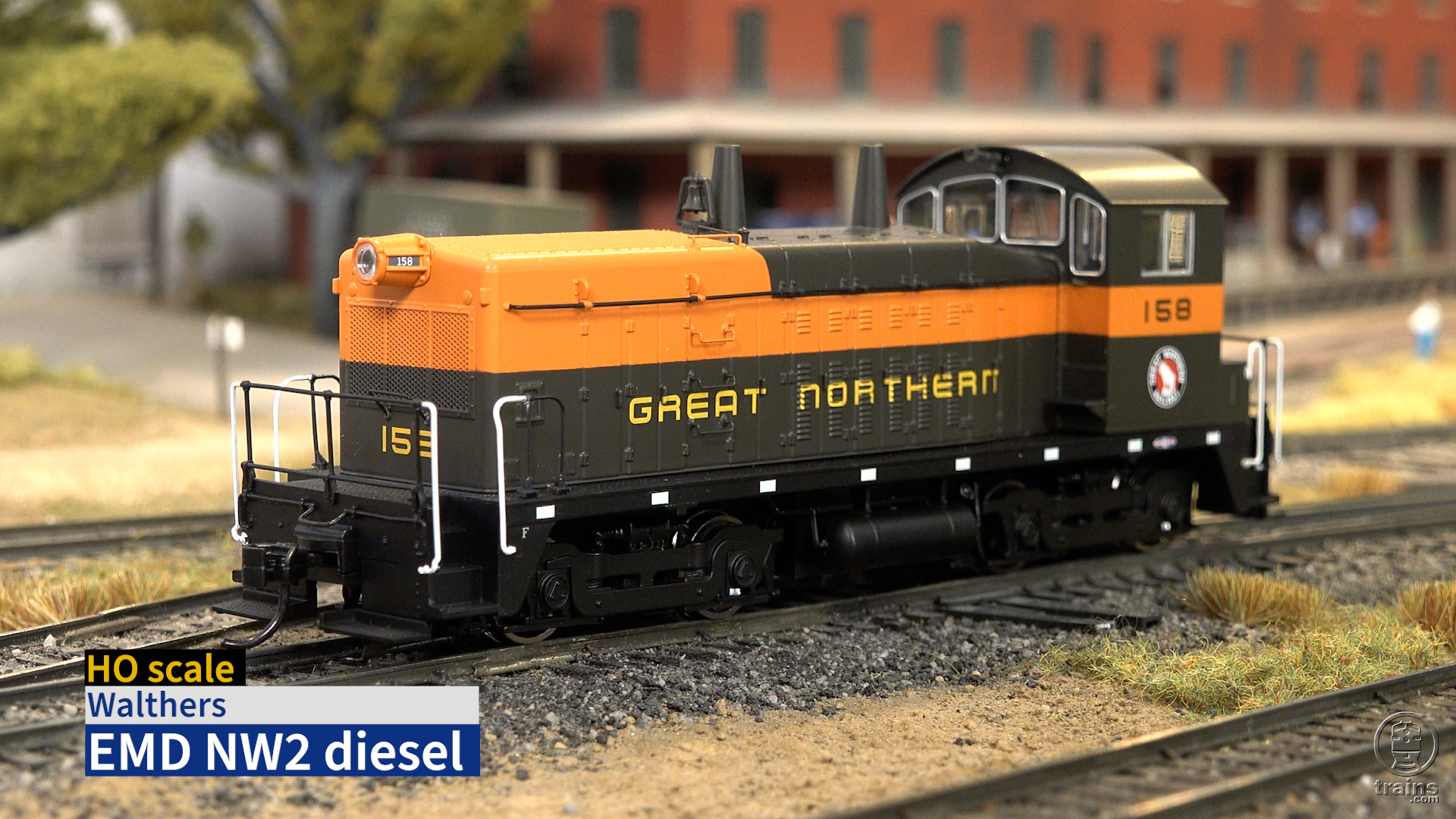




As a CSX stockholder back to B&O days I continue to be very pleased with Hinrich. They needed a real shipper to point out the problems and getting them to look at service from a shippers viewpoint. With my NS stock, I like Shaw, too.
Mr. Messers: I too have a small number of shares of both CSX and NS although I don’t go back nearly as far as you. And I am trying to have faith in both Messers Hinrichs and Shaw that they can turn things around on customer service and shake off both their company’s adoration of PSR. The key here is David Lassen’s quote from the R. J. Corman guy, “I hope it’s something that’s sustainable and that investors will give it a chance”.